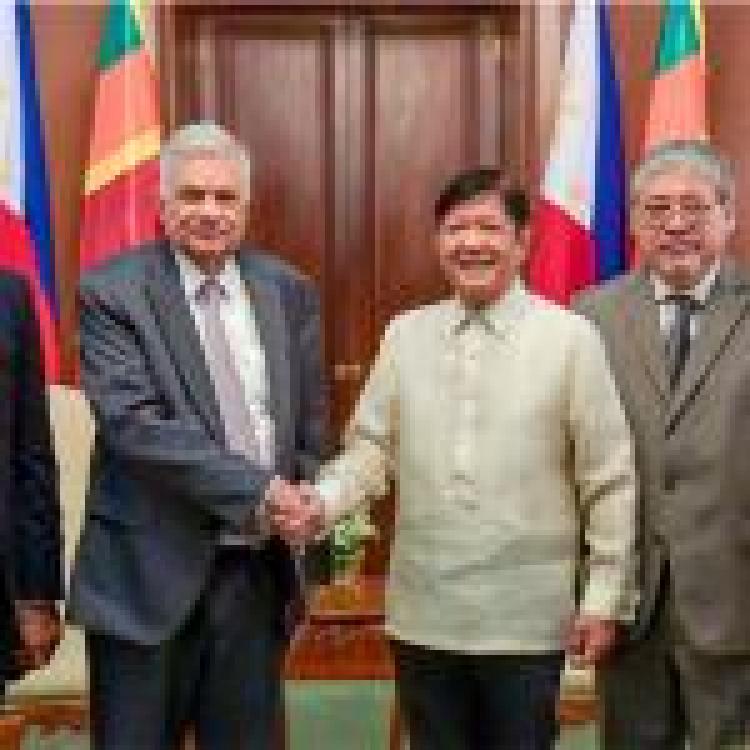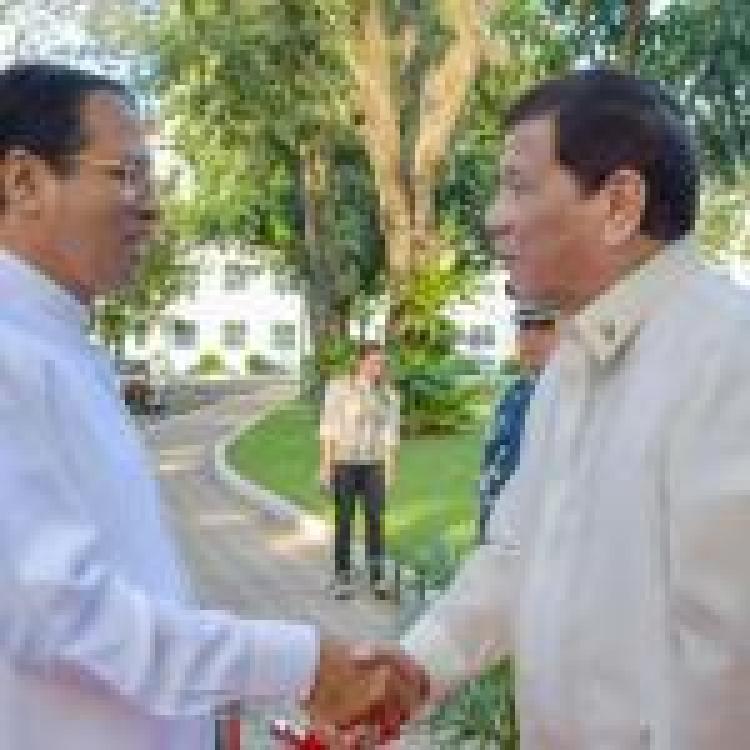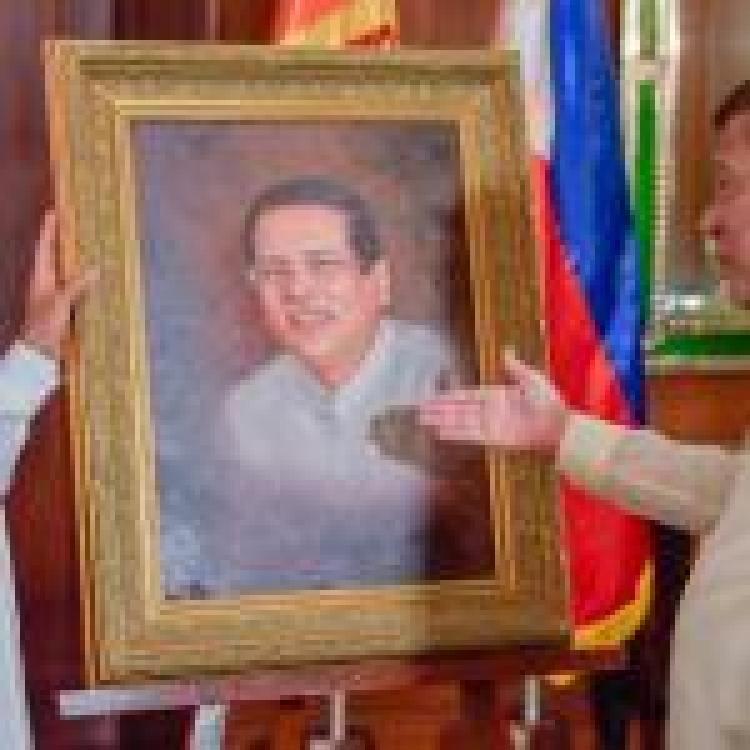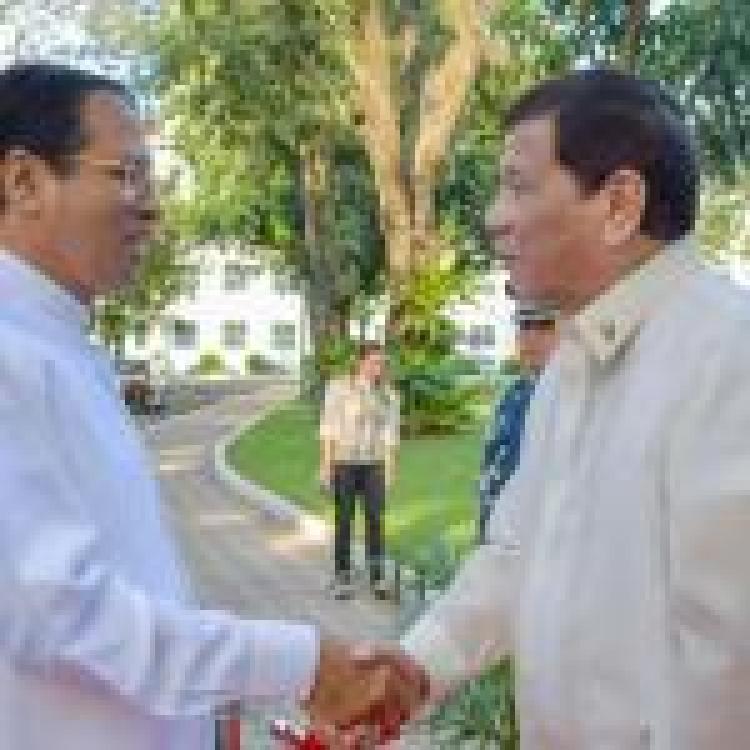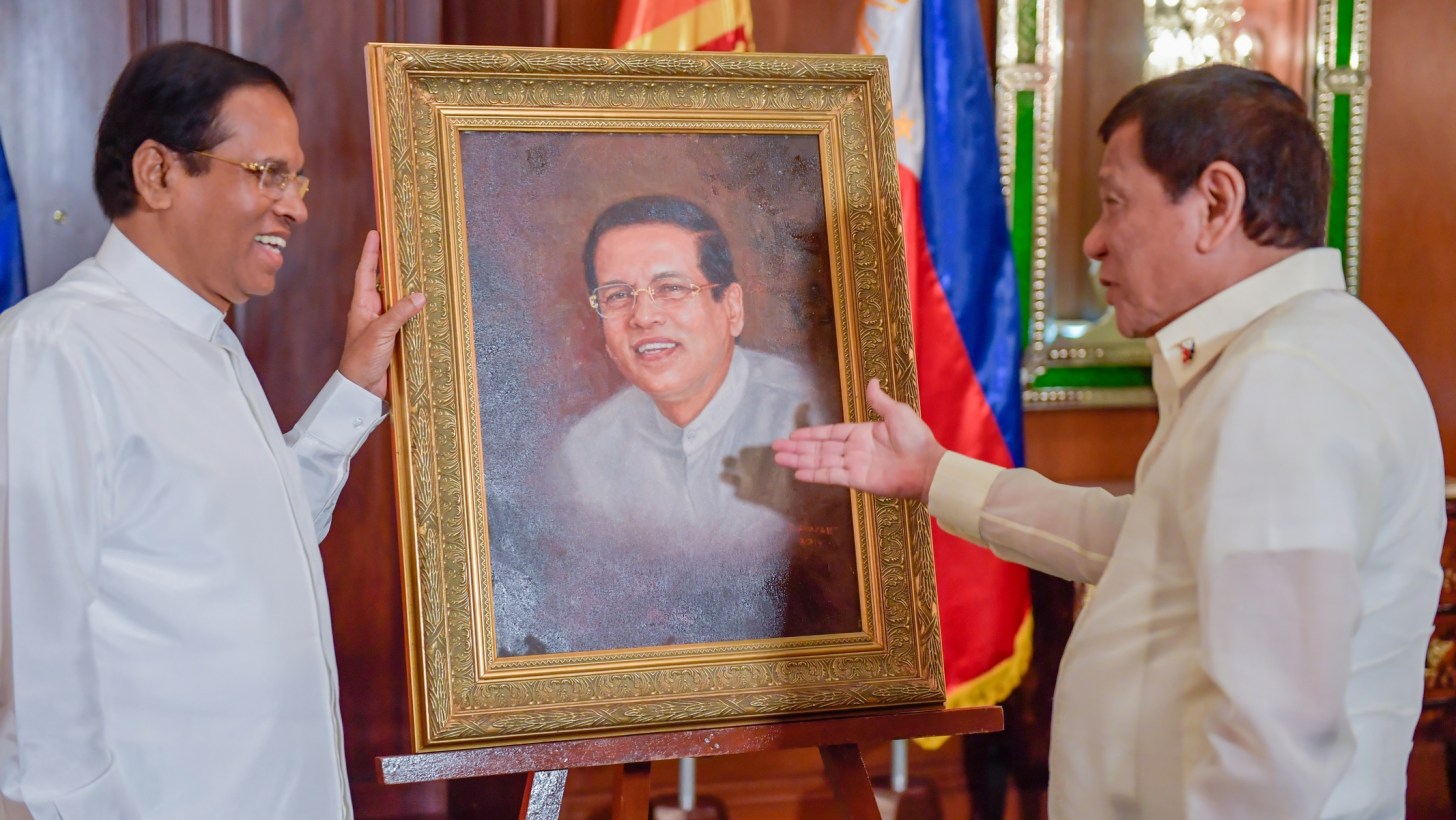
Former Philippine President Rodrigo Duterte has left Manila for The Hague, hours after the International Criminal Court (ICC) issued an arrest warrant against him over crimes against humanity linked to his brutal “war on drugs”, which saw as many as 30,000 people killed.
While Duterte now faces international prosecution, we examine Sri Lanka’s past associations with his policies and his government’s opposition to international accountability efforts.
Sri Lanka’s endorsement of Duterte’s brutality
Duterte’s violent anti-drug crackdown had long drawn international condemnation, yet Sri Lanka’s political leaders, particularly former presidents Maithripala Sirisena and Gotabaya Rajapaksa, embraced his methods rather than rejecting them.
In 2019, during a state visit to the Philippines, Sirisena openly praised Duterte’s campaign, declaring that it was an “example to the whole world, and personally to me”.
“The war against crime and drugs carried out by you is an example to the whole world, and personally to me,” he said. “The drug menace is rampant in my country and I feel that we should follow your footsteps to control this hazard.”
Speaking on the illegal drug trade, Duterte later announced,
“On the western side, we have the Golden Triangle, also a well-known drug cartel in Asia and now doing business in the East Asian countries, prompting even the [president] of Sri Lanka say, ‘I will follow Duterte. I will kill the bastards’.”
He went on to call Sirisena a “shining example".
Sirisena’s remarks, which aligned Sri Lanka with Duterte’s brutal approach, were widely condemned by human rights organisations. The Philippines-based group iDefend warned Sirisena that if he were to adopt Duterte’s tactics, he should be prepared to face scrutiny at the ICC.
Push to implement Duterte’s policies in Sri Lanka
In 2019, Sirisena announced plans to reintroduce the death penalty for drug offences, explicitly citing Duterte’s "success" as inspiration. The move sparked fierce opposition from human rights groups and the international community, who warned that capital punishment would not solve Sri Lanka’s drug problem and could lead to widespread human rights abuses.
Duterte himself welcomed the Sri Lankan government’s decision, with his spokesperson Harry Roque declaring:
“Of course, we are happy that other countries have taken note of our war on drugs and that they look upon us as best practice on dealing with illegal drugs.”
Despite these pronouncements, Sri Lanka ultimately did not carry out executions, as international pressure mounted against the policy.
Sri Lanka’s military and diplomatic ties with the Philippines
Beyond drug policy, the Sri Lankan government strengthened military cooperation with the Philippines under Duterte. In 2019, Sirisena signed several bilateral agreements, including defence and military exchange programmes. The deals covered joint military education and training as well as the exchange of defence and military delegations.
These agreements were significant, as Duterte’s administration was already under international scrutiny for its widespread extrajudicial killings, carried out with the complicity of security forces. Rather than distancing itself, Sri Lanka chose to deepen military cooperation with Duterte’s regime.
Duterte’s defence of Gotabaya Rajapaksa
The Philippines also actively shielded Sri Lanka from international accountability at the United Nations Human Rights Council (UNHRC). In March 2021, the Philippines voted against a UNHRC resolution that sought to collect and preserve evidence of war crimes in Sri Lanka, potentially for future prosecutions. Gotabaya Rajapaksa personally thanked Duterte for his government’s opposition to the resolution in a phone call.
Given Duterte’s own record of violating human rights and obstructing accountability, his support for Sri Lanka’s accused war criminals underscored a mutual interest in avoiding international prosecution.
Duterte’s downfall
Now, with Duterte fleeing to The Hague to face an ICC arrest warrant, his former allies in Sri Lanka remain untouched. While international prosecutors are building a case against Duterte, Sri Lanka continues to reject international accountability, despite overwhelming evidence of war crimes, including the murder of tens of thousands of Tamil civilians in 2009.
Duterte’s downfall however, serves as a stark warning to leaders around the world, and in Colombo, who believe they can perpetrate atrocities with impunity. Sri Lanka’s leaders may not be able to evade justice forever.

